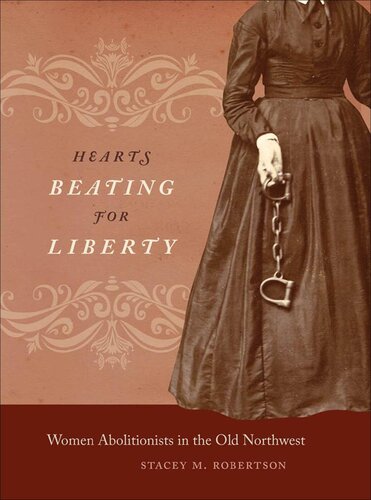
Hearts Beating for Liberty: Women Abolitionists in the Old Northwest PDF
02010·0.815 MB·English
Most books are stored in the elastic cloud where traffic is expensive. For this reason, we have a limit on daily download.
Preview Hearts Beating for Liberty: Women Abolitionists in the Old Northwest
Description:
Challenging traditional histories of abolition, this book shifts the focus away from the East to show how the women of Ohio, Indiana, Illinois, Michigan, and Wisconsin helped build a vibrant antislavery movement in the Old Northwest. Stacey Robertson argues that the environment of the Old Northwest--with its own complicated history of slavery and racism--created a uniquely collaborative and flexible approach to abolitionism. Western women helped build this local focus through their unusual and occasionally transgressive activities. They plunged into Liberty Party politics, vociferously supported a Quaker-led boycott of slave goods, and tirelessly aided fugitives and free blacks in their communities. Western women worked closely with male abolitionists, belying the notion of separate spheres that characterized abolitionism in the East. The contested history of race relations in the West also affected the development of abolitionism in the region, necessitating a pragmatic bent in their activities. Female antislavery societies focused on eliminating racist laws, aiding fugitive slaves, and building and sustaining schools for blacks. This approach required that abolitionists of all stripes work together, and women proved especially adept at such cooperation.
See more
The list of books you might like
Most books are stored in the elastic cloud where traffic is expensive. For this reason, we have a limit on daily download.
